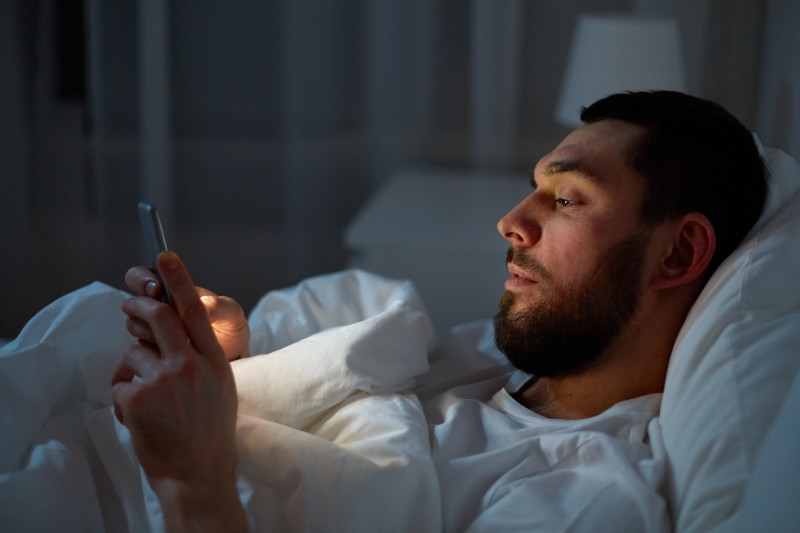The effects of UVA and UVB light on the body
Tumors in the eye can be caused by high levels of UV irradiation. However, it’s not just ultraviolet light that can cause damage to your eye — too much blue light is also dangerous as it penetrates all the way to the retina. If the eye is exposed to too much ultraviolet and/or blue light, it can suffer a lot of damage, possibly leading to conjunctivitis, cataracts or permanent retinal damage. The risk of developing eye cancer is also increased.
Traditional bulbs are increasingly being replaced by LEDs, low-energy bulbs, and xenon lights. It’s these types of lighting that are exposing your eyes to higher levels of blue light than ever before. Smartphones, computers, TVs, and any other devices with displays also emit blue light, which has a shorter wavelength than ultraviolet light, thus making it particularly dangerous for your eyes.
And yet the amount blue light irradiation your eyes are exposed to is 30 times higher when you’re outside for an hour in overcast conditions than when you’re looking at a screen for an hour in an indoor space. Indeed, it still isn’t entirely clear how much damage staring at a screen is doing to your eyes. However, it has been proven that people blink less when they’re looking at display, causing irritated and dried out eyes. It’s also important to stare into the distance from time to time so that your eyes can relax. This lowers the risk of becoming short-sighted, too.
Despite the possible risks to your health, it’s actually just as dangerous to avoid ultraviolet and blue light altogether. That’s because this type of light is needed to boost serotonin production in the brain, which leaves you feeling happier and calmer. Light also regulates your hormonal balance and sleeping pattern, ensuring you’re feeling alert, energetic, and productive. In addition, blue light plays a particularly key role in overcoming depression and sleeping problems.

How to protect your eyes against damage
To protect your eyes, you should opt for glasses that have lenses and coatings with a blue light filter; these can also be worn inside. Another option is to use warm white light sources (color temperature above <3300 K). This measures are particularly beneficial for people exposed to blue light for a long period of time, especially during working hours. If you’re outside in sunny conditions, you should always protect your eyes by wearing sunglasses. When purchasing sunglasses, it’s important to look for the FCC mark. That’s how you can be sure that the eyewear is providing your eyes with sufficient protection.
As you can see, blue and ultraviolet light isn’t dangerous for your eyes per se — it’s all about the amounts you’re exposed to. If you observe the above, you needn’t worry about damage caused to your eyes from light. If you notice any unusual symptoms, you should consult a doctor. At the end of the day, our eyes are probably one of our most important sensory organs!












